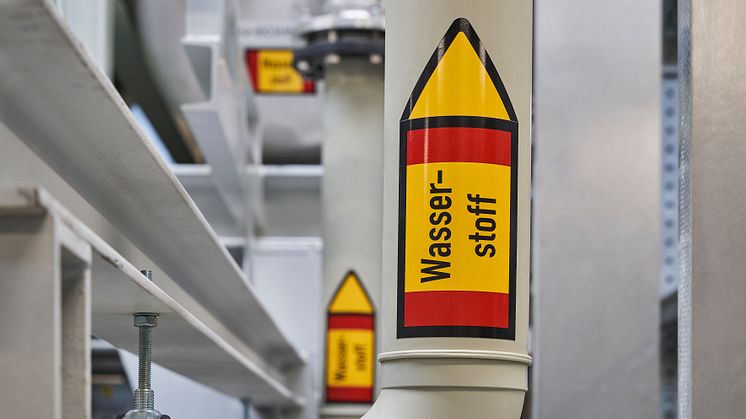
News -
Pioneering Hydrogen Infrastructure to Cost 50 Billion Euros
The new federal government faces the immense challenge of making Germany’s energy supply secure, affordable, and climate-neutral in the long term. Hydrogen will play a central role in this transition, as a reliable energy supply in the future will require both molecules and electrons – that is, green gases and electricity. “What matters most is achieving climate neutrality and defossilization in the energy sector, and accelerating the necessary hydrogen ramp-up. With a special fund of 500 billion euros for the coming years, the CDU/CSU and SPD have the necessary foundation,” says Prof. Dr. Gerald Linke, Chairman of the Board of the German Technical and Scientific Association for Gas and Water (DVGW).
Hydrogen infrastructure will cost a maximum of 50 billion euros on top of the 20 billion euros already allocated for the core hydrogen network
Since the infrastructure needed for the hydrogen energy transformation will require no more than 50 billion euros in total – only about one-tenth of the special fund – a swift implementation of the planned measures is an obvious step. According to DVGW estimates, the investments break down as follows: 20 billion euros for H2-ready power plants, 15 billion euros for hydrogen storage, 5 billion euros for distribution networks, and 10 billion euros for additional grid-enhancing measures. “This comparatively small portion of a massive overall investment package should serve as a strong political incentive to reduce CO₂ emissions in our country by consistently focusing on hydrogen. With just one-tenth of the federal government’s special fund, a climate-neutral energy transition can be significantly advanced,” Linke emphasizes.
Technology neutrality instead of the current Building Energy Act
With regard to the coalition agreement, the DVGW Chairman welcomes the fact that gas networks are to be preserved, as they are essential for a secure heat supply. He also supports the decision to abolish the current version of the Building Energy Act and to increasingly focus on technology neutrality and simplified municipal heat planning in order to ensure a climate-neutral heat supply. The heating market is especially crucial for meeting climate targets, as around 53 percent of energy consumption in Germany is attributed to this sector. The operation of all heating systems in the country currently generates around 90 million tons of CO₂ annually – approximately 10 percent of Germany’s total CO₂ emissions.
Clear commitment to H2-ready power plants
The DVGW welcomes the government’s plans to focus energy policy on the demand-oriented maintenance, conversion, and expansion of the gas infrastructure, including the development of hydrogen storage. The plan to build 20 gigawatts of gas-fired power plant capacity – effectively doubling previous targets – is also supported by the DVGW. However, across all efforts, it is crucial to enable long-term investments, for example in the planned amendment of the Combined Heat and Power Act (KWKG) this year – including technology neutrality and alignment with the capacity mechanism. According to the DVGW, it is essential to extend funding beyond 2026.
The coalition agreement generally indicates that approval procedures are to be accelerated and digitalized, that bureaucratic hurdles are to be reduced at both German and EU levels, and that European energy partnerships are to be strengthened. These efforts should be acknowledged, provided they are prioritized in implementation.
Adopt the 2025 federal budget soon
The DVGW also clearly criticizes the lack of clarity in financing the measures outlined in the coalition agreement – especially when they are subject to budgetary reservations. “It is crucial to adopt the 2025 budget, as the future Chancellor has announced, before the summer break in order to promptly implement important and urgent investments in the energy transition and the ramp-up of new gases. The new federal government could thus make an early statement of intent for a new 'German pace',” says Linke.
